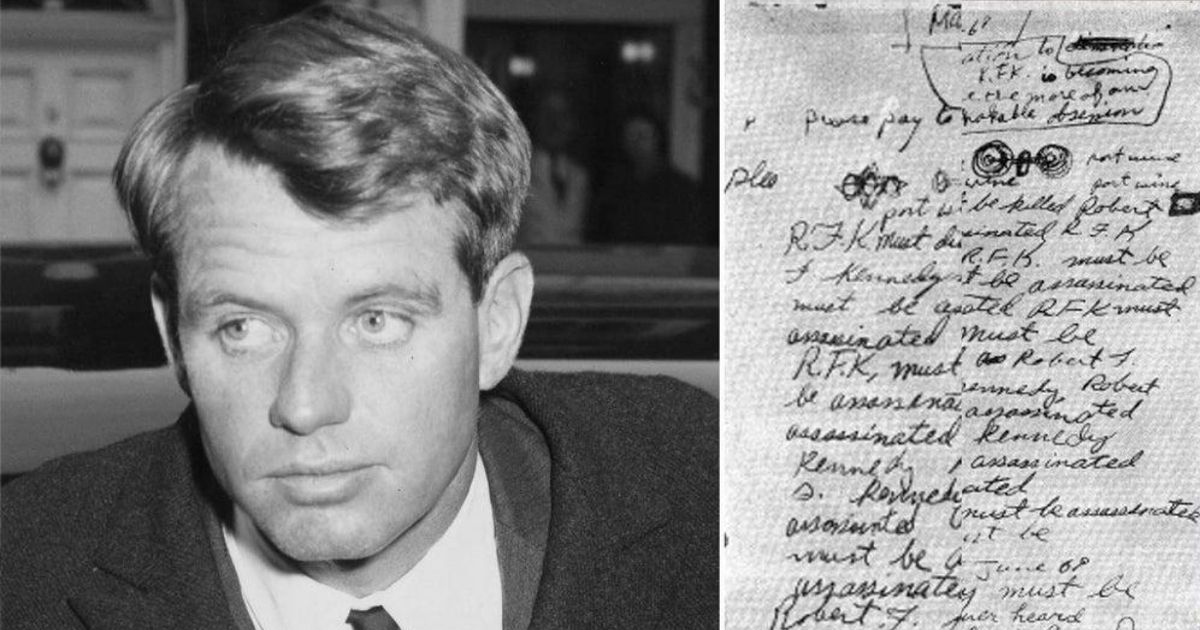The National Security Agency has released approximately 1,450 pages of declassified CIA documents related to the assassination of Senator Robert F. Kennedy. These documents now offer undiluted new insights into one of America’s most tragic political murders.
Along with the release of JFK assassination documents, President Donald Trump had also signed the executive order for the release of declassified documents of the RFK assassination.
The order was finalized at the beginning of June, and then the release came. This release included 54 never-before-seen documents.
The collection includes CIA field reports, intelligence cables, memos, and investigative records linked to RFK’s 1968 assassination. These sets of reports are also related to major national events such as the killings of John F. Kennedy and Martin Luther King Jr. These also have information related to the 1972 attempt on George Wallace.
CIA Declassifies 1,450 Pages on RFK Assassination
Today’s doc dump—linked below—includes 54 files never before seen by the public, revealing Sen. Robert F. Kennedy’s Cold War intel sharing with the CIA.
Trump, Tulsi & RFK Jr. all involved.
Link👇 pic.twitter.com/FYGOMkGZvc
— Jon Fleetwood (@JonMFleetwood) June 12, 2025
There have been some extremely significant revelations in these documents. One of the most important is the confirmation that RFK voluntarily collaborated with the CIA years before his death.
A document from 1955 detailed that after returning from a trip to the Soviet Union, RFK supplied the CIA with intelligence on Soviet industry. These information include reports such as factory workforce numbers and working conditions. This raises questions about his depth of involvement in U.S. intelligence affairs.
CIA releases more files in RFK assassination, including note from his killer https://t.co/mSASsH6Duj pic.twitter.com/NqFuEKboV1
— The Independent (@Independent) June 12, 2025
There is also a handwritten note from Sirhan Sirhan in the declassified files. He was RFK’s assassin. The note is dated May 18, 1968, just weeks before the murder. The note repeatedly states, “Kennedy must fall,” and “RFK must be disposed of,” indicating clearly that it was a premeditated murder.
This note was found on Sirhan after his arrest. It suggests that Sirhan had a deeply ingrained psychological fixation on RFK. It also prompted a renewed debate over his mental state and the possibility of external influence.
REMINDER: Bobby Kennedy was assassinated by 24 yo PALESTINIAN TERRORIST Sirhan Sirhan when he was running for President in 1968.
The Palestinian Terrorist allegedly targeted RFK in retaliation for his support of Israel. pic.twitter.com/lghWKd8m3w
— The Persian Jewess (@persianjewess) July 13, 2024
A psychological assessment of Sirhan’s state of mind was also included in the files. There have been whispers of CIA involvement in yet another Kennedy assassination, though no direct evidence of CIA manipulation. The CIA has also been accused of introducing mind control drugs and methods, and no evidence to prove such allegations were found either.
Still, the content of the note and the timing of its discovery have reignited long-standing conspiracy theories. Those who argue that Sirhan did not act alone, are more interested in these documents.
RFK died on this date in 1968, after being shot while leaving the Ambassador Hotel in Los Angeles. Dying with him: the liberal wing of the Democratic Party, and many of the most enduring secrets surrounding the life and assassination of his brother, John F. Kennedy. pic.twitter.com/h7LybYgljk
— Tim Fattig (@timfattig) June 6, 2025
Robert F. Kennedy was killed on June 5, 1968. He had just finished delivering a victory speech following the California Democratic primary and was moving out through the kitchen pantry of the Ambassador Hotel in Los Angeles, where he was attacked.
Sirhan Sirhan was a Palestinian-born immigrant who later claimed his actions were politically motivated. He cited RFK’s pro-Israel stance during the 1967 Six-Day War as the reason that started the chain of actions that led to RFK’s death. However, after his conviction, Sirhan maintained that he does not remember doing any such heinous crime and had repeatedly requested parole. All his appeals have been denied.
These newly declassified documents add more layers of complexity to the established narrative. There are sparking fresh analyses of the political and psychological forces at play in the assassination.
1/ Today, June 5th, is the day RFK was shot (1968) & the day israel launched its sneak attack on Egypt, starting the 6-Day War (1967). The 2 events are connected, as we’ll see in this thread.
The RFK assassination is also connected to the JFK assassination, but the same people… pic.twitter.com/r10oGbzMlx
— Sam Parker 🇺🇸🧯 (@BasedSamParker) June 6, 2025
The document release has drawn responses from figures across the political and historical spectrum. RFK’s son, Robert F. Kennedy Jr., has always been skeptical of the official story. He pointed to the files as further proof that Americans deserve full transparency regarding events that have historical implications and affect the lives of everyone in the country.
Researchers, journalists, and the public are sifting through the pages, and the implications for RFK’s legacy and the integrity of U.S. governmental institutions are coming into the limelight. Even though the documents fail to deliver a definitive alternative theory, they have undoubtedly reopened discussions about the dark intersections of politics and intelligence during the Cold War era.













